Tamagawa students who found the topic “Securing Japan’s Future in an Ever-globalizing World” interesting took part in the Super Global Summer Course. In cooperation with the College of Intercultural Communication at Rikkyo University, the course held a series of lectures over three days in which the students widened their knowledge and experience of other cultures.
The lectures were held at the Ikebukuro Campus of Rikkyo University. Three professors oversaw the program with each running the lectures for one day.
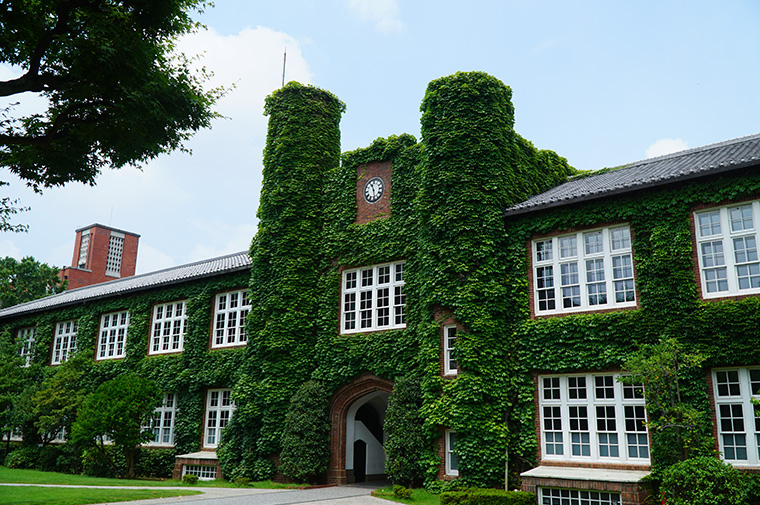
On the first day, seven students attended a lecture on the “human rights of women” that was delivered by Prof. Amanda Weiss. It was titled “Women and Human Rights—from a cross-culture logical point of view,” and detailed the historical background and the current state of the issue, focusing on the fields of education, health, safety and citizenship.
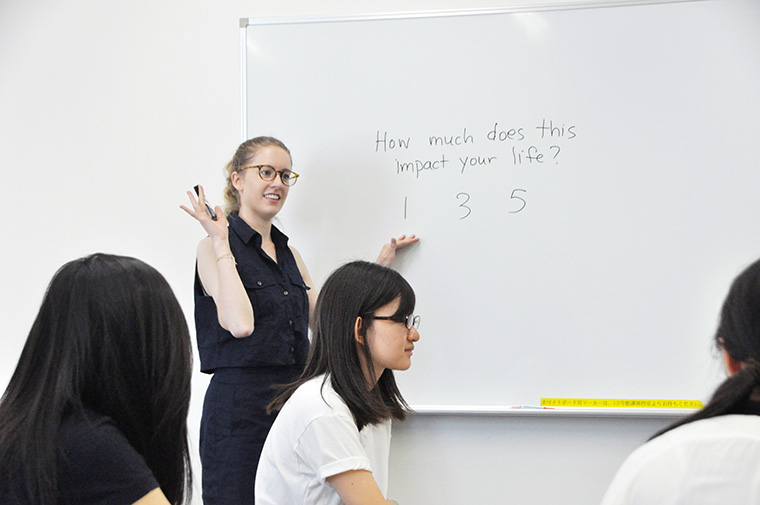
At the beginning, Prof. Weiss engaged the students in a friendly way and they responded with smiles. After this casual introduction the lecture started in a relaxed atmosphere. In a short-time they learned about gender disparity as a result of social conventions, and made a list of the causes of the disparity on the whiteboard after discussing the topic in groups. They not only listened to the lecture, but also thought about the issue themselves. They were able to express their opinions and realized some of the hidden factors and consequences of the issue.
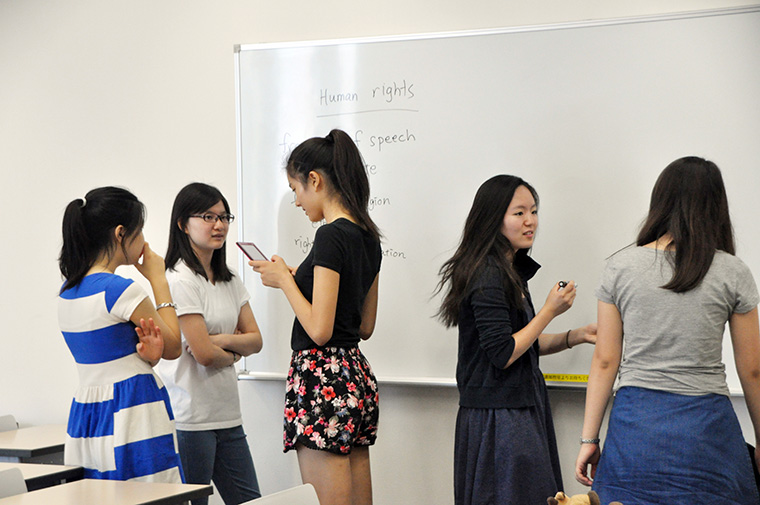
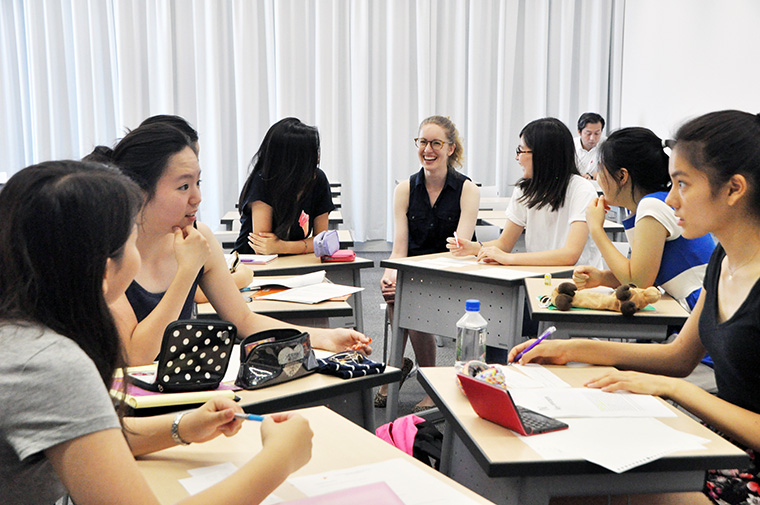
On the second day, Prof. Stephan Johnson gave a lecture titled “International Organizations Against Poverty.”
He showed news articles on the theme and also handouts and TED videos. Prof. Johnson introduced international organizations that are engaged in activities to eliminate poverty. He noted the actions by the World Bank and United Nations and described their developing history and impact on society.
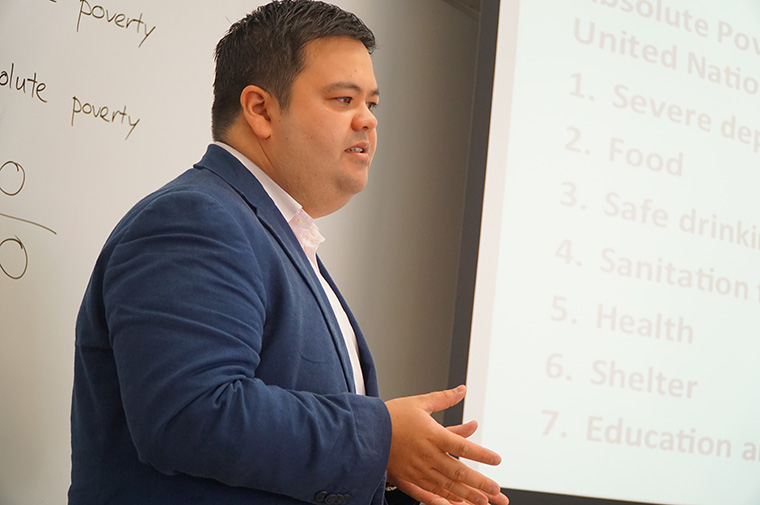
The students concentrated on the lecture and answered questions put to them by Prof. Johnson. After the lecture, they all read about poverty in a handout and discussed it.
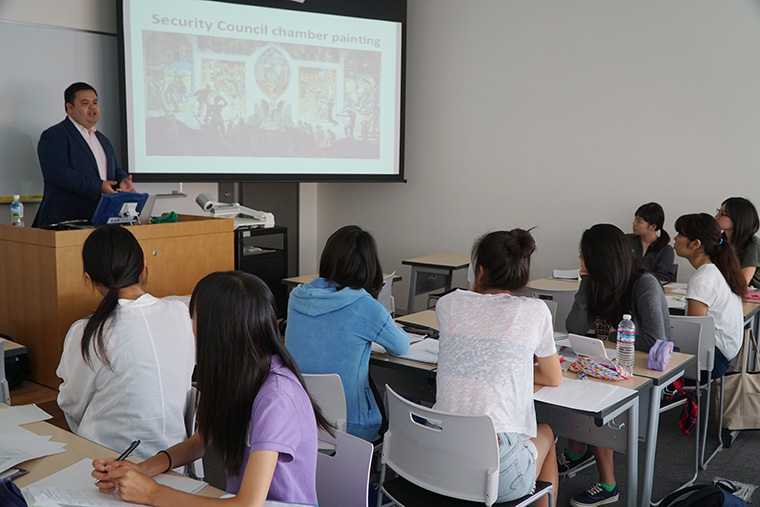
Prof. Johnson and the students communicated in English. Though the students couldn’t speak English perfectly, they helped each other and tried to understand the English handout, which clearly showed their motivation for learning as much as possible during the class.
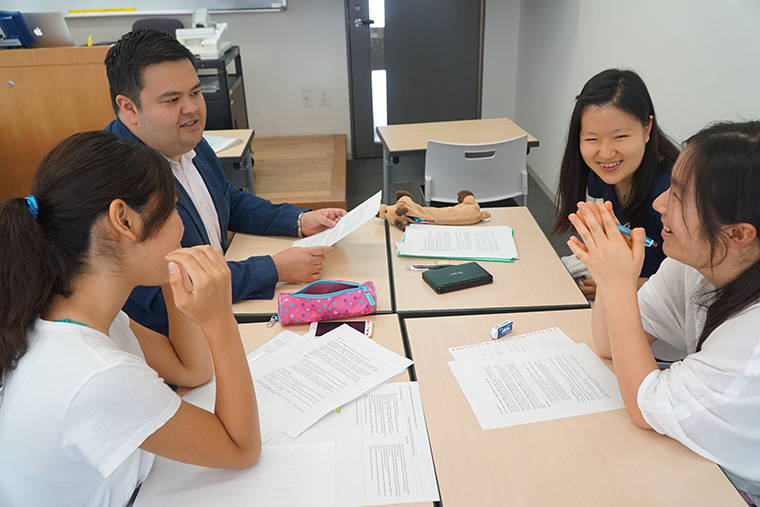
On the last day, 13 students attended the lecture “Culture, Language and Communication in Diplomacy” by Prof. Paul Cunningham. They sought the relationships between culture, language and communication, which are needed to train skilled diplomats.
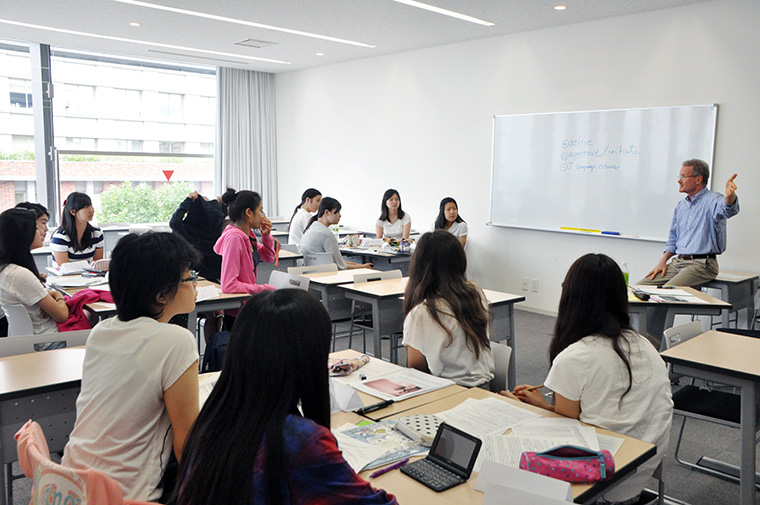
First, they were divided into groups of four or five members, the students shared their own ideas about the theme in a relaxed atmosphere. Then, they listened to the lecture and discussed it. They enjoyed the style of the lecture very much.
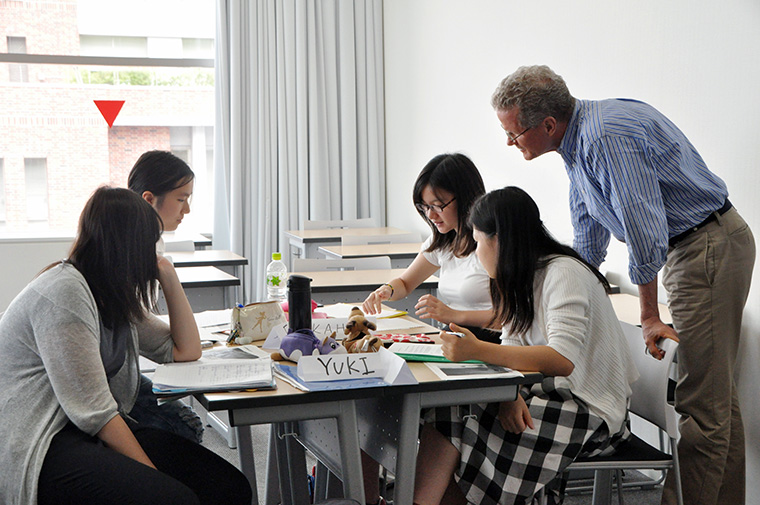
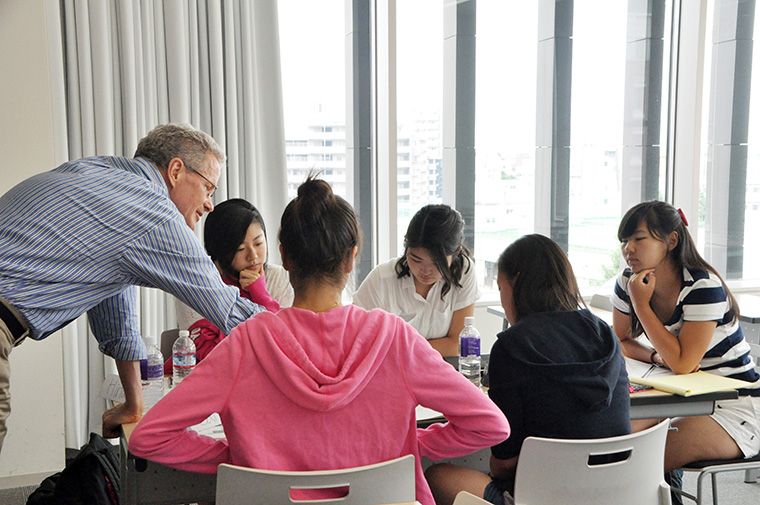
“Though I couldn’t understand everything in the lectures, I was inspired and enjoyed them,” said a participant who was not familiar with English and had aimed to improve the skills used to participate in English. Each student had their own motivation and they found a lot of clues to use in their future studies.



